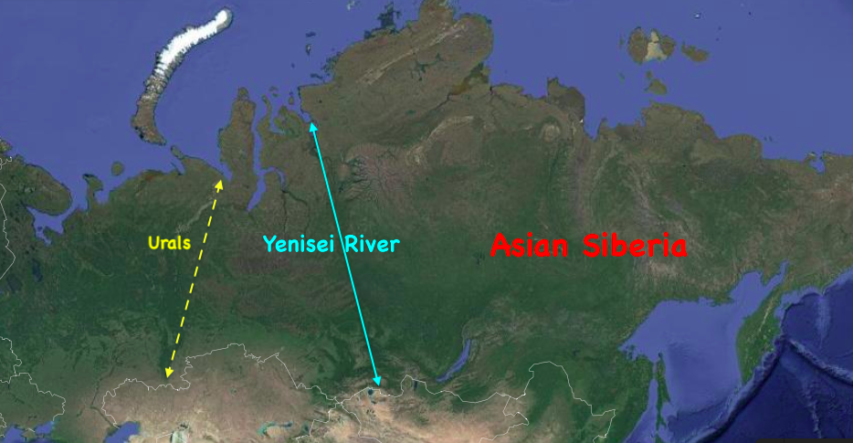Ted Campbell looks at some long-frozen geopolitical forces that may become more active in coming years:
The Jamestown Foundation, which some experts describe as mainly non-partisan and relatively unbiased, has published an interesting article by Paul Goble in which he reminds us that “Russia east of the Urals comprises more than two-thirds of the Russian Federation but has only about one-fifth of that country’s population. It is where most of Russia’s natural resources are to be found, though the earnings from their extraction largely go to Moscow and not to local people. The region is located three to ten time zones east of Moscow and is linked to the center by few roads or rail lines. Its people are far closer to China and other Pacific rim countries — including the United States — than to the core of the Russian Federation. Because of their roots in explorers, those fleeing oppression, and those sent there by the state for punishment, eastern Russians have always been more independent minded and entrepreneurial than Russians in central and western Russia. Perhaps the most important measure of this cultural divide is that Protestant faiths dominate the religious scene there, not the Russian Orthodox Church of the Moscow Patriarchate.”
It is related to something I have been saying for a long time: Siberia (essentially everything East of the Yenisei River (some say everything East of the Urals) is Asia …
… while Russia, per se, is an Eastern European country.
[…]
A few years ago a couple of middle-ranked Chinese officials suggested to me that one of China’s long-term strategic plans was (and I’m guessing still is) to encourage separatist movements in Siberia which, they hoped, will succeed in creating three or four (maybe even five or six) “autonomous” states in Siberia which will, like Mongolia, look, primarily to China for trade and support.
China
covetsneeds the resources, including water, that Siberia has. I have, in the past, forecast a Sino-Russian “Water War” in Siberia. But, speaking broadly and generally, the Chinese don’t like wars: they are expensive and unpredictable. They would much rather play a modest, behind the scenes role in creating a handful of weak, independent Siberian states with which they can trade to their advantage. They do not, I was told, wish to annex Siberia ~ some Chinese feel that the Qing Dynasty (1644 to 1912) went too far when it annexed what is now the Xinjiang Uyghur Autonomous Region (新疆维吾尔自治区) in 18th century.(Tibet is a different matter and most of the Chinese people I know who might wish that Xinjiang was a more autonomous place, more like Kyrgyzstan, for example, believe that Tibetans are Chinese (and Uighurs are not) and Tibet is a “natural” part of China.)
I said a couple of days ago, that “Russia is a pariah state that is flailing about as it withers and dies.” But Putin is flailing about in the wrong directions. The Chinese are, I believe, cultivating and fertilizing Siberian separatist movements with a view to dismembering Russia and “liberating” Siberia. When that happens, and I’m confident that it is NOT an IF, the world will be a much different place.




